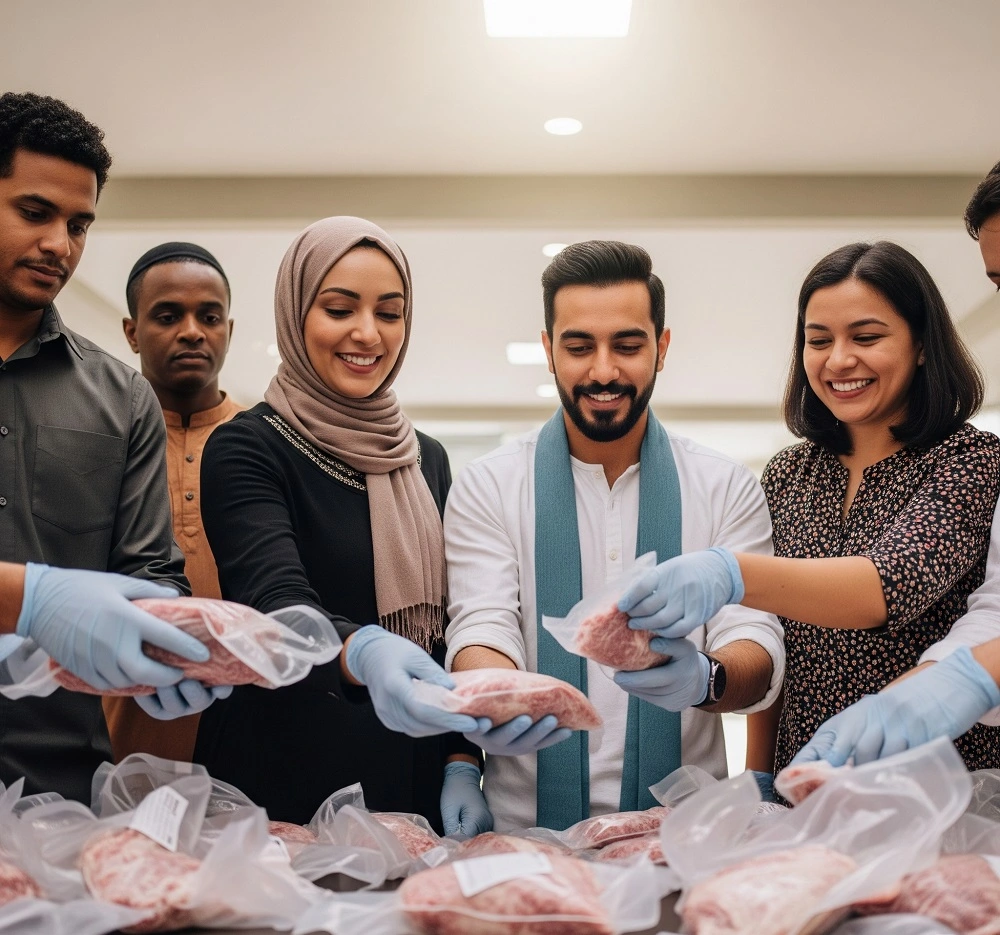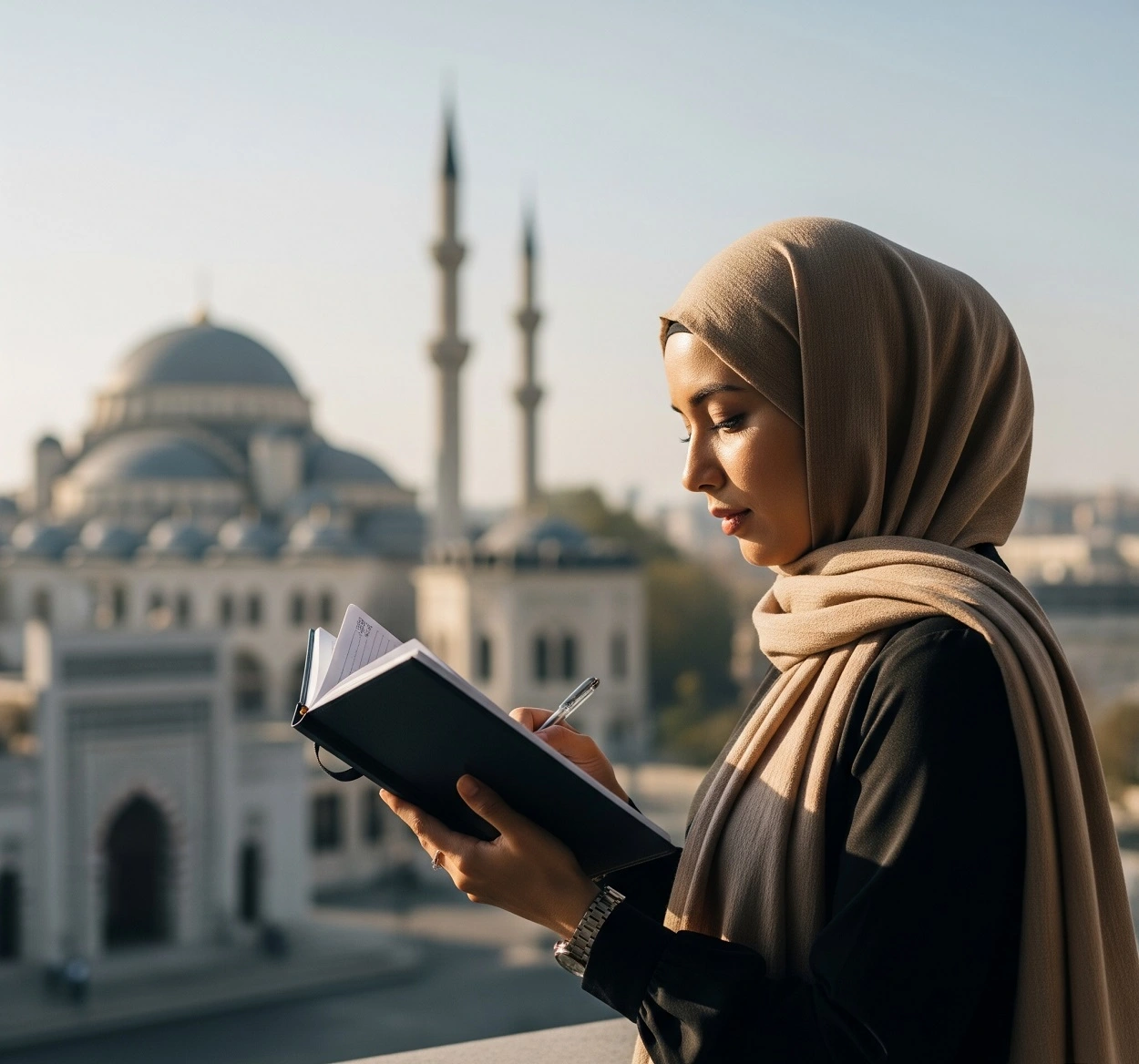Qurban Worship: A Pillar of Social Welfare and Community Solidarity in Eid al-Adha
Understand how the Qurban ritual on Eid al-Adha is not just about spirituality, but also a key to improving social welfare, nutritional equity, and strengthening brotherhood in society.

Eid al-Adha is a special moment eagerly awaited by Muslims worldwide. Also known as the Festival of Sacrifice, this celebration doesn’t just mark the end of the Hajj pilgrimage but also signifies the beginning of the Qurban ritual. More than just an individual act of worship, Qurban plays a fundamental role in improving social welfare in society.
The Qurban meat distributed to those in need is a tangible manifestation of Islam’s concern for others, creating a widespread positive impact. This article will thoroughly explore how distributed Qurban meat can ease the burden of life and foster a sense of togetherness and social solidarity within the community. We will also provide practical guidelines for fair distribution in accordance with Islamic principles.
Qurban: A Practical Solution for Social Welfare
The social benefits of Qurban are undeniable. In many places, especially for underprivileged families, meat is a luxury commodity rarely enjoyed. This is where Qurban worship acts as a bridge for the equitable distribution of sustenance.
1. Alleviating Life’s Burdens and Fulfilling Nutritional Needs:
- Equitable Distribution of Animal Protein: For most underprivileged families, Qurban meat is a highly anticipated source of quality animal protein. This is not just fleeting enjoyment but also contributes to essential nutritional fulfillment, especially for children who need nutrients for optimal growth and development.
- Easing Economic Burden: The presence of Qurban meat can significantly lighten household expenses, at least for a period. This allows them to allocate their funds to other more pressing basic needs.
2. Fostering a Sense of Togetherness and Social Solidarity:
- Shared Joy: The most beautiful social impact of Qurban is its ability to spread happiness. When all segments of society, rich and poor alike, can enjoy the same meal on Eid al-Adha, it creates a strong sense of togetherness and breaks down social barriers.
- Strengthening Bonds of Brotherhood: The process of collecting, slaughtering, and distributing Qurban meat often involves the collaboration of many parties: committees, volunteers, and the general public. This interaction naturally strengthens social ties, cultivates care, and reinforces Eid al-Adha solidarity.
- Instilling Empathy: For those performing Qurban, this worship is an exercise in empathy and compassion. They learn to feel the hardships of others and are motivated to share their abundance. For recipients, it fosters gratitude and hope.
Guidelines for Fair and Sharia-Compliant Qurban Meat Distribution
For the social impact of Qurban to be maximized and blessed, the distribution of Qurban meat must be carried out fairly, in an organized manner, and in accordance with Islamic principles. These are essential Qurban distribution guidelines for individuals and organizations to consider:
Prioritize the Most Needy (Fakir Miskin):
- The primary focus should be given to the poor (fakir miskin), orphans, widows, people with disabilities, and those in dire need of assistance.
- Conduct accurate data collection or coordinate with local community leaders (RT/RW) to identify truly priority families.
- Also consider distribution to remote areas, disaster victims, or regions with high poverty rates that are often overlooked.
Fair Allotment of Portions:
- Ensure that every eligible family or individual receives a fair and equal share. Avoid practices that unfairly benefit one party over another without a Sharia-compliant reason.
- While there’s no fixed measure, the principle is sufficiency and equitable distribution.
Organized and Respectful Distribution Process:
- Coupon/Queue System: Use a coupon or orderly queue system to avoid crowds, pushing, and to ensure the comfort of recipients.
- Comfortable Location: Choose a distribution location that is easily accessible, shaded, and safe for recipients.
- Hygienic Packaging: Meat must be packaged neatly and hygienically (e.g., in clean plastic bags or containers) to maintain quality and health. Avoid using non-food-grade black plastic bags.
- Respectful Handover: Hand over the meat with a friendly face, a smile, and kind words, preserving the dignity and honor of the recipients. Never make recipients feel like they are “begging” or being demeaned.
Transparency and Accountability (for Organizations):
- Institutions or Qurban committees must maintain transparency in managing Qurban funds and meat.
- Provide clear reports on the number of sacrificial animals, the slaughter process, the amount of meat distributed, and the distribution coverage area. This builds trust among the public and those who performed Qurban.
Real-World Examples of Qurban’s Impact in Society
- Distribution to Disaster Areas: When natural disasters like earthquakes or floods occur, Qurban meat often becomes a vital protein supply for displaced people. Humanitarian organizations actively distribute Qurban meat to these locations, providing both nutrition and moral support.
- Reaching Remote Archipelago Regions: Many organizations in Indonesia have programs for distributing Qurban meat to remote or hard-to-reach areas. For example, to indigenous tribes in Papua, Mentawai, or border regions, where they may rarely have access to meat. This is not just about food, but also about feeling care from fellow Muslims.
- Qurban Programs for Orphans and the Needy: Mosques and orphanages routinely hold special Qurban programs for orphans and underprivileged families in their surrounding areas. This allows them to celebrate Eid al-Adha joyfully.
Conclusion: Qurban, a Perfect Humanitarian Investment and a Pillar of Civil Society
Qurban worship is clear proof that Islam always encourages its followers to be agents of positive change in society. More than just fulfilling a religious obligation, Qurban is an investment in the afterlife whose impact is directly felt in the improvement of social welfare. Through the fair and ihsan-filled distribution of Qurban meat, we can ease the burden of others, foster social solidarity, and create a more caring and harmonious society.
Let us make Eid al-Adha a momentum to strengthen our commitment to sharing and doing good, making every drop of Qurban blood a seed of happiness and blessing for all humanity.






Comments